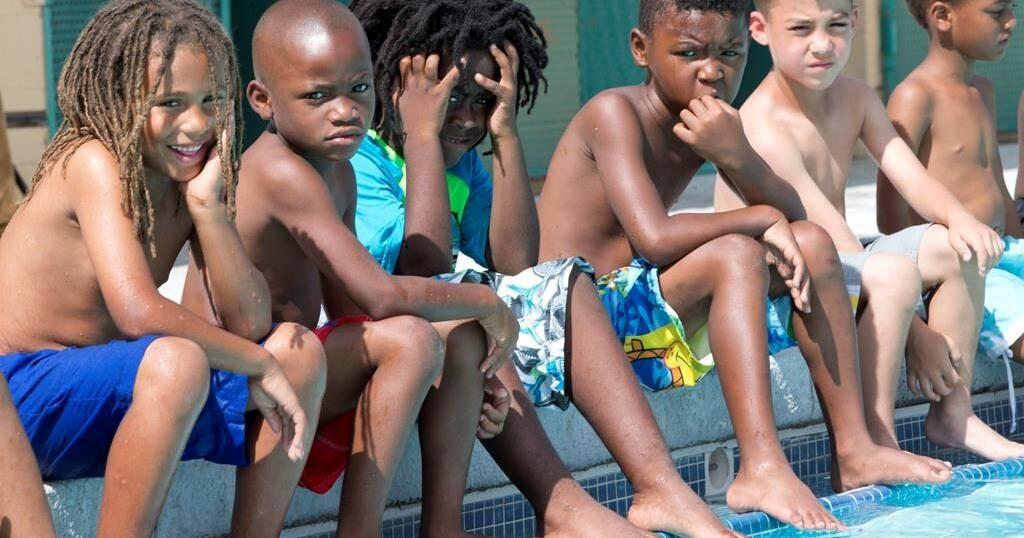When Monisha Sharma looked into swim lessons for her daughter, she decided to take an unconventional route to save costs.
Rather than enrolling in a formal program, the Toronto woman joined together with a group of neighbours who pooled funds to hire a private instructor at a recreation centre.
Sharma figured swimming and soccer, which her four-year-old also recently picked up, would be “the two cheap programs” compared with other youth sports options like hockey. She has quickly learned how expensive any program can be.
As Canadians cope with rising costs in all corners of their lives, experts say kids’ athletic programs are no exception, making it more difficult for families to keep their children active at an affordable price.
“When you look at the rising costs, all these things add up very quickly — ‘Oh, it’s only $50 for this or $100 for this.’ And then you’re looking at thousands, which is shocking to me; thousands of dollars on an annual basis,” Sharma said.
She estimated a final price tag ranging from $700 to $1,000 to keep a young child in soccer for a full year, including annual expenses for equipment such as new shoes.
But costs at the beginner level pale in comparison to what awaits parents as their kids get older, especially if they want to play at more advanced levels of a particular sport.
Chris Scheele, an Edmonton-based financial planner at Align Wealth, said fees can quickly snowball to amounts “that families are not prepared for.”
“I think a lot of people are feeling like it’s harder and harder to afford,” said Scheele, who has spent much of his career advising parents on how to budget for their kids’ high-level sports journeys.
“They really want their kids to have that experience, but the cost is one thing that’s preventing it in some cases.”
More competitive leagues may entail travel tournaments with hotel stays, more ice or field rental fees, and even higher quality equipment. That’s on top of the greater time commitment, with practices and games not necessarily confined to the weekend or evenings.
“I think the often-underestimated piece is the cost escalation over the years,” Scheele said.
“If you decide to go to a competitive strain of soccer, the cost difference for a 14-year-old versus an eight-year-old is probably pretty extreme. The further you progress into it, the older you are, the more time commitment, so the more costs for coaching fees or facility bookings or team travel.”
If it seems a child has the potential to pursue their favourite sport at a competitive level over the long term, Scheele recommends families start preparing early for the financial burden. Just like planning for retirement, he said it’s important to have a plan in place that accounts for both known and unknown costs associated with their child’s athletic path.
He also noted there are many assistance programs in Canada that aim to provide financial support for families in need with kids in sport.
One of those, KidSport Canada, helped more than 40,200 kids participate in athletic programs last year by paying a portion of their registration fees — an amount that usually falls between $300 and $400 per child, said its CEO Greg Ingalls.
“We’re seeing that the cost of sport is rising as is the cost of living, and with that, obviously, there’s going to be a larger percentage of families that can’t afford to get their kids into sport or are choosing to spend their dollars in other places,” Ingalls said.
Sharma, a personal finance expert who is chief revenue officer of Fig Financial, said parents are increasingly facing difficult decisions about prioritizing and limiting after-school activities in order to make ends meet.
Compounding the problem is the expectation that children start early in a given sport — both to confirm they are actually interested in continuing, as well as to avoid falling behind their peers if they pick it up late.
“You can’t wait until they’re 12, 13 to enroll them in some of these programs because by then it’s too late,” she said.
“So there is a tremendous amount of parental guilt attached with this. Every parent wants to do their best by their kids.”
She said one of the major consequences to the rising cost of athletic programs is that “it pushes out kids that are not superstars.”
“If you’re a superstar and you’re in a sport, you feel like the investment is ‘worth it,’ there’s a (return on investment) there. But when you’re so young, the biggest part of being in a sporting activity is to have fun. It is to grow,” she said.
“It really is creating a divide between the haves and have-nots, because people are being forced to make these decisions.”
For families that can afford to play, or qualify for assistance, Ingalls said there are few substitutes for the value that a child’s sporting experience can give them for years to come.
“Sport teaches the life skills that they’ll carry with them the rest of their life, how to be a good teammate, how to work hard toward things, rules and consequences for breaking rules,” he said.
“And while we see the cost of sport increasing, it’s still an excellent investment in children’s future.”
This report by The Canadian Press was first published Sept. 12, 2024.

























